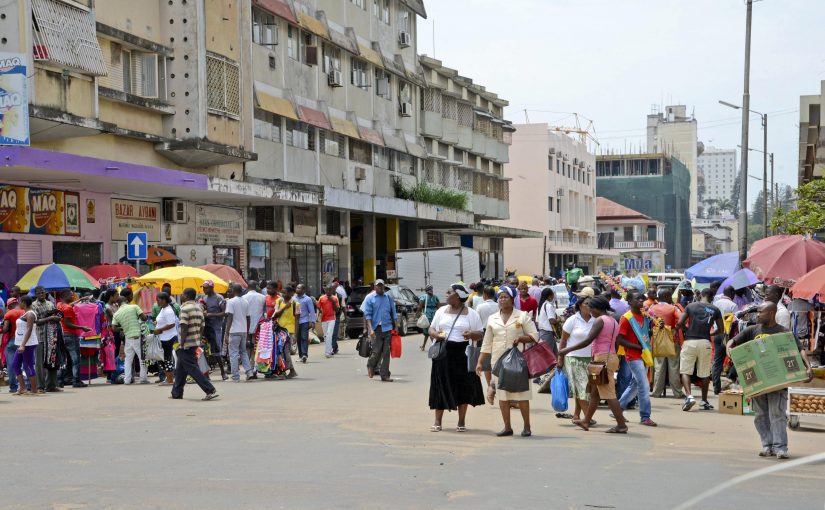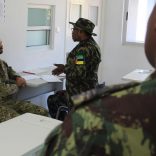Mozambique: Pair arrested with 200 kg of cannabis in Moatize, Tete
Hidden debts suspect ready to cooperate with courts

in file CoM
Lebanese Jean Boustani, one of the main suspects in the case of Mozambique’s hidden debts, has made a formal proposal to cooperate with the courts and called for reduced coercive measures in his first appearance before a US court.
According to the lawsuit filed by Lusa today, the defendant was brought to court on January 2, the same day he was detained at John F. Kennedy Airport in New York.
Boustani, a negotiator for Privinvest (United Arab Emirates) and the main suspect in the case, pleaded not guilty to all charges in his first appearance in court, where he was accompanied by his lawyers, who called for a reduction in sentence and house arrest, with electronic surveillance, guaranteeing $2 million as collateral.
The businessman is being held in custody in the United States after Judge Peggy Kuo denied the first proposal of collaboration with the courts.
The defense proposed paying $2 million in cash and finding a residence for the accused and his family (wife and son) in New York State, where “it would be acceptable” to have electronic surveillance to counteract the risk of prosecution.
The lawyers also reiterated Boustani’s “vast economic resources” and his ability to pay sureties of any amount, giving an example of $5 million or $10 million dollars.
Given the proposed collaboration with the court, Judge Kuo signed an order in which he admits the “reasonable likelihood that the negotiations underway will result in a verdict without trial”.
The court ruled that a custodial sentence in a jail could be upgraded to house arrest if the defense files specific proposals for an address in the United States and is approved by the federal Pretrial Services.
At the request of the accused, the court agreed to an adjournment, decreeing that the defense has until January 23 for the negotiations of collaboration, during which time Boustani cannot be subjected to any trial.
The first hearing to determine the facts of the case, which has a total of seven defendants, including Mozambique’s former finance minister Manuel Chang, two other Mozambicans and several conspirators, was scheduled for January 22.
In Boustani’s first presentation, lawyers argued that it is “unfair” to keep the defendant in a US prison, with which he has no connections, and added that all evidence of “conspiracy to defraud the United States” and “conspiracy to fraud in US territory” would be “very limited “.
The suspect was arrested in the Dominican Republic on January 1.
Boustani, who was born in Lebanon and holds a passport from Antigua and Barbuda, only wanted to inform the consular authorities of Antigua and Barbuda of his detention, saying that the Lebanese consulate in US was not notified.
The US court is handling the case of Mozambique’s hidden debts, which exceeded $2 billion in 2016, with charges of conspiracy to defraud the United States, conspiracy to commit fraud, conspiracy to commit securities fraud, and money laundering, among others.
The indictment alleges that investors from the United States and other countries were harmed and defrauded in the scheme set up by Boustani, Andrew Pearse, Surjan Singh, Detelina Subeva, Chang and five Mozambicans whose names are kept secret, three of which are presented in the process as co-conspirators.
The lawsuit, which involves frauds against international investors and the payment of bribes to elements of the Government and the Presidency of Mozambique between 2011 and 2016, is underway in a federal court in Brooklyn, New York, after the discovery of million dollar transfers through New York bank accounts and after US investors were injured in this scheme.
According to the US prosecutor’s order issued last week, three Mozambican public companies, Ematum, Proindicus and MAM, reportedly acquired the loans to carry out “maritime surveillance” operations, support for tuna fishing and repair naval.
The scheme awarded loans to these three companies worth more than $2 billion (€ 1,760 million) guaranteed by the Mozambican government between 2013 and 2016.
The case is being analysed under the Foreign Corrupt Practices Act (FCPA), a United States code that condemns the payment of bribes to members of foreign governments to approve business for their own benefit.
For the FCPA, it is a crime to use e-mail to propose, discuss or order monetary amounts intended to bribe foreign government officials to accept or give preference to some businesses.
The passage of these corrupt payments across US territory or the involvement of US citizens are aggravating and decisive factors in the prosecution of such criminal cases.












Leave a Reply
Be the First to Comment!
You must be logged in to post a comment.
You must be logged in to post a comment.